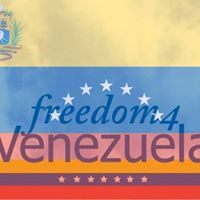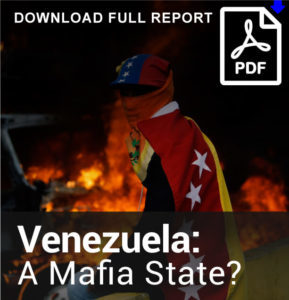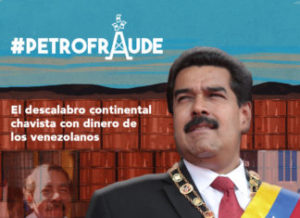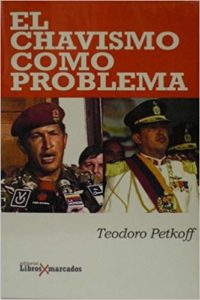And business was good. A year earlier, Mr. Telkov, who has tightly cropped brown hair and the shoulders of a hockey player, traveled to Guangzhou, on China’s southern coast — he speaks Mandarin, along with Arabic and English — to attend a trade show and meet with local fabric manufacturers. He negotiated a production contract on the spot. By cutting out the middlemen, Mr. Telkov was able to sell fabric for less than half the price charged by his more-established Russian competitors: around $5 per linear meter, as opposed to $12. In less than a year, Mr. Telkov had recouped his start-up capital of around $1 million and had a fleet of trucks, three warehouses and 18 employees. “I saw no limits to how big it could get,” said Mr. Telkov, now 33.
That May morning, not long after Mr. Telkov got to his warehouse, a convoy of speeding cars pulled up. Out came 10 police officers, some carrying automatic weapons. The officers told Mr. Telkov that he was under suspicion of copyright violations and that they would have to confiscate some of his goods as evidence.
Other men in plain clothes walked around and pointed to rolls of fabric: Take this, take that. The search lasted the whole day and continued into the next. In the end, the police carried away 527 rolls of fabric. Mr. Telkov was confused, not to mention panicked: a big furniture exhibition in Moscow was two days away, and he had just lost 80 percent of his inventory. He went from one government office to another, as he put it, “knocking on doors and saying, ‘Guys, you stole my goods, where are they?’ ” He got no answers.
Two months later, in July, investigators officially charged Mr. Telkov with copyright infringement. The indictment cites designs for five styles of fabric that Mr. Telkov had supposedly stolen; among them was a leopard-print pattern, as well as one that resembled a slab of marble. It was funny, absurd even, but it was also uncomfortably serious. If found guilty, Mr. Telkov could spend up to six years in prison.
Some 100,000 Russian businesspeople are either in prison or have been subject to criminal prosecution. Among the most famous is Mikhail B. Khodorkovsky, the former head of the Yukos oil company, who had been in prison for more than a decade until he was unexpectedly released this month by President Vladimir V. Putin. The pardon, coming as it did on the cusp of the Winter Olympics to be held in Sochi, Russia, was viewed more as a political expedient than as a harbinger of reform.
Mr. Telkov says that in his situation, investigators seemed more interested in pressuring him to plead guilty than in building a case; he says he was promised a suspended sentence, in which he would avoid prison but lose his confiscated goods. That’s how Russian businesspeople who find themselves in the middle of such cases often choose to plead. But Mr. Telkov was, simply put, a nuisance, filing requests and demanding to see the fabric that had been taken from him. If someone wanted to intimidate him or wear him down, it wasn’t working.
Finally, in January, at the request of investigators, a judge ordered Mr. Telkov arrested and held in pretrial detention. He was put into a cell with 10 other men, most of whom were facing drug charges. As Mr. Telkov remembers, investigators suggested that it was his own fault — if he would only make a deal, he could go home.
Weeks passed, then months. Mr. Telkov’s wife, Adilya, said she was sure that the court would see the absurdity of the case and release her husband. “At first I was absolutely certain that if not at this hearing, then the next one. If not there, then one more,” she said. After a few months, though, she said she “stopped being naïve.”
A Well-Placed Advocate
When Boris Titov heard about Mr. Telkov’s case, it struck him as a clear reminder of why his job is necessary. Mr. Titov, who holds the official title of presidential commissioner for entrepreneurs’ rights, was appointed to his position — which reports directly to Mr. Putin — in June 2012. Fighting corruption and easing the way for business are among the main priorities, at least in rhetoric, of Mr. Putin’s current economic agenda. After years of oil-fueled growth and rising consumption, the economy is slowing, with growth in gross domestic product falling to just over 1 percent. Kremlin officials hope that an improved climate for small business will help save the country from a prolonged period of stagnation, thus preserving social and political stability.
But that will not be easy, in no small part because of policies enacted by Mr. Putin over the years. According to a global survey of entrepreneurship released in the spring, 7 percent of Russians are engaged in entrepreneurial activity and just 3.8 percent have plans in the next three years to open their own businesses. (For comparison, the overall average in the so-called BRICs countries — Brazil, Russia, India and China — is 21 percent, and 24 percent for Eastern Europe.) Most university graduates say they want jobs in government service or as managers in large corporations.
Mr. Putin’s decision this month to pardon Mr. Khodorkovsky was long awaited by the business and investment community, but does little to lift the many hurdles to entrepreneurship in Russia: a large state sector that crowds out private investment, an unwieldy thicket of regulation and bureaucracy, and a police force and court system that can often seem like the persecutors of businesspeople as much as their protectors.
One rainy afternoon this fall, I went to see Mr. Titov in his office tucked inside a small, leafy park just beyond Moscow’s central ring road. Russia’s entrepreneurs, he said, “wouldn’t have asked the president to create this position if everything was great.” One day, he said, he hopes his work won’t be required anymore. But for now, he imagines his office, with its staff of a few dozen people, as a kind of “joint venture” between business and the state in an effort to make entrepreneurship more “comfortable, profitable and safe.”
A 53-year-old businessman, Mr. Titov began his career in the 1980s, selling oil and petroleum products abroad for the Soviet foreign trade ministry. After the Soviet collapse, he helped found a company that sold mineral fertilizers and lubricants; he often worked from London. In recent years, he started a lobbying group, Business Russia, and had several notable successes in saving individual businessmen from criminal investigations.
At the same time, Mr. Titov has good relations with the state, enjoying access to the highest levels of power, Mr. Putin included. In May 2012, to celebrate Mr. Putin’s inauguration, he supplied to the Kremlin 5,000 bottles of sparkling wine, produced by a vineyard Mr. Titov owns.
Mr. Titov is fighting against a deep societal hostility toward private business that goes back to the Soviet days, when the sale of anything for even a kopeck of profit could be considered illegal speculation. But the animus really sharpened in the 1990s, a period of chaotic and murky deal-making in which a few became rich and most everyone else was left gasping to stay afloat. Suspicion toward private enterprise is so widespread, said Olga Romanova, who founded the group Russia Behind Bars after her husband was sent to prison on economic charges, that “even the guy who owns the local convenience store in a village is seen as a kind of oligarch.”
While speaking on a panel at an investment conference where Mr. Titov was also present, Igor Zubov, a deputy minister of internal affairs, said that many criminals simply take on the cover of business, and suggested that businesspeople are to blame for corruption since they are the ones giving bribes. But while many in the police and security services are sincere in such beliefs, just as often these attitudes can provide a cynical opening for corruption. “If nobody loves a private businessman,” Mr. Titov said, “then you can go to him and ask for a bribe, and he can’t say anything.”
But Mr. Titov argues that a majority of improper legal cases against entrepreneurs — he has said as many as 80 percent — originally stem from disputes among businesspeople themselves. A conflict arises, and one side goes to the police, who, as Mr. Titov said, “have learned very well how to take advantage of this.”
That appears to have been the case with Mr. Telkov. He didn’t think much of it at the time, but he later remembered that while attending a Moscow trade fair, some men came up to him and said: “You have very low prices. We suggest you raise them, otherwise you will have problems.” While in jail, after studying the case materials, he realized that those men in civilian clothes who pointed at the fabric to confiscate were representatives of his competitors. What’s more, Mr. Telkov learned that under Russian law, if investigators don’t have the room to store evidence before trial, they are allowed to use private spaces. In his case, police investigators decided to hold the fabric confiscated from Mr. Telkov in his competitors’ warehouses.
After Mr. Telkov had been in jail for several months, his wife wrote to Mr. Titov. Over the last year, Mr. Titov’s office has received several thousand such pleas and taken on many hundreds. Right away, Mr. Titov said, he could tell that Mr. Telkov’s was a “unique case.” It was almost unheard-of for a businessman to be charged with this particular violation of copyright law, let alone held in jail. The evidence seemed odd, and, as Mr. Titov remembered, the case struck him “clearly as an attack by competitors.”
Mr. Titov’s involvement made a difference right away, because, like it or not, police and investigators have to provide him with answers. “It’s one thing for an accused person to write from jail on a piece of toilet paper,” said Sergei Tayt, the head of Mr. Titov’s advisory secretariat. “But if a commissioner who reports to the president writes about some sort of outrageous situation, that’s a different status entirely.” Over the coming months, Mr. Titov would indeed be able to help, but the case would also reveal the limits in a system that favors the state at the expense of private businesspeople.
‘The Fires Are Burning’
As the months in jail went on, Mr. Telkov tried to keep himself from turning into a “zombie,” as he put it. His lawyer, Alkhas Abgadzhava, would have him look through the case materials and help write motions.
It didn’t take long to notice incongruities in the charges. Even the copyrights in question seemed odd: they were based on letters of unclear provenance from the United States and Turkey, where the original copyrights were said to be held. One copyright, for the pattern “Pemberton,” was registered on June 3, 2011. But the search of Mr. Telkov’s warehouse happened almost a month earlier, on May 12. Another copyright document from Turkey is dated from 2004 yet mentions a design registered two years later, in 2006. The case file contained two separate analyses of the fabrics, supposedly written by two different independent experts. But the analyses were word-for-word identical.
Mr. Titov and his staff were convinced of what had happened. “One of his competitors simply began to use criminal prosecution against Telkov,” Mr. Titov told me.
Mr. Tayt said it seemed as if “someone showed up, jump-started some investigators, and then they closed their eyes to the law.” Mr. Titov wrote letters to the general prosecutor’s office and the interior ministry on behalf of Mr. Telkov. At one meeting, he pushed for law enforcement officials to take another look at the case materials, with an eye toward dropping the charges. Mr. Tayt, who was also present, said some of the officials were themselves “puzzled” by the investigation.
Still, it was hard for Mr. Titov to win a conclusive victory for Mr. Telkov. The police and prosecutors have grown accustomed to a degree of unquestioned impunity, and the Russian justice system is permeated by a sense of inevitability. Proceedings chug along according to the logic of bureaucratic formalism, in which judges are wary of ruining their own statistics and thus instinctively paper over sloppiness on the part of the police and investigators. Mr. Titov, while not changing the fundamental system, is at least a voice — a “challenge to impunity and to this sense of quiet,” said Vladislav Korochkin, the vice president of the Moscow chapter of Opora, a nongovernmental organization that defends private business. “He is making certain people think about having to change their habits.”
In his first weeks on the job, Mr. Titov spoke to police officials in Ufa, a city of one million people 725 miles southeast of Moscow. He chastised the officials about suspicious cases against local businesses. Yana Yakovleva, the head of Business Solidarity, a nongovernmental organization that defends the rights of entrepreneurs, attended the meeting and told me that Mr. Titov produced a palpable sense of “discomfort” among the officers and bureaucrats present. “It wasn’t clear who this new figure is,” she said, “who at one moment appears on television meeting with Putin and in the next is issuing a reprimand.”
But Ms. Yakovleva compared Mr. Titov to a man who wakes up in the middle of the night to find cockroaches all over his kitchen. He starts hitting them with his slipper, she said, “but you could go crazy fighting these cockroaches every night.”
Mr. Titov himself once compared his office to a brigade of firefighters: “The fires are burning and burning, and new ones are being produced all the time,” he said. But he is proud to talk about successes that he has been able to achieve. And one of them, he says, is the case of Mr. Telkov.
On Jan. 26, 2013, after letters and pressure from Mr. Titov, months of work by Mr. Abgadzhava, as well as coverage in the local press, a judge ordered Mr. Telkov freed from pretrial detention. He had spent a year in jail. After being released, he went directly to a restaurant for lunch with his wife and friends. “The only thing I wanted was to eat fried potatoes,” he told me.
Now a free man, he was able to spend more time working with Mr. Abgadzhava on his defense, as well as trying to slowly rebuild his business, which was effectively destroyed. But despite his release, the charges remained. Mr. Telkov was still a defendant awaiting trial.
A Very Costly Ad Campaign
More than any individual case, the signal achievement of Mr. Titov’s tenure as ombudsman has been a so-called business amnesty, under which those prosecuted for a range of economic crimes would be freed and their records expunged. Mr. Titov says that more than 1,500 people have been freed since the law was passed in July, but that number is potentially misleading; just 116 have actually left jail or a prison colony, whereas the rest had their convictions lifted but already had suspended sentences or had served out their prison terms.
The amnesty law, while pathbreaking, emerged with several major caveats. For starters, instead of a blanket amnesty that would apply to nearly all economic crimes, it was whittled down to exclude many categories, including the overarching charge for fraud, which Mr. Titov estimates applies to 70 percent of prosecuted businesspeople. Another requirement says that only first-time offenders are eligible. (At the time, some wondered if the purpose of this technicality was to exclude Mr. Khodorkovsky, who was tried in two separate cases.) And then, to be eligible, the convicted person — or even one who is merely accused — must pay back whatever losses they are alleged to have caused their victims.
Mr. Titov pushed to have the little-used copyright article included in the amnesty law, an addition meant specifically to aid Mr. Telkov. That means he is eligible for amnesty, which would close the case against him and expunge the charges — but only if he pays back the supposed damages, in his case claimed by investigators to be around $338,000. Mr. Telkov has refused.
The question for those watching Mr. Titov is how much he can achieve within the current political order, which arguably depends on allowing for a certain level of corruption among law enforcement for its stability. Moreover, the very creation of an ombudsman’s office is symptomatic of the habits of a highly centralized system, which thinks to solve problems by means of a single, powerful figure — an even stronger bureaucrat to defeat the evils of bureaucratism.
“Of course it’s easier to name Titov to his position than reform the courts,” said Mr. Korochkin, whose nongovernmental organization defends private business. But he acknowledged that “the first will help the second,” pointing to Mr. Titov’s efforts to change parts of the criminal code and his ability to represent the perspective of small-business owners to high-ranking officials.
Mr. Abgadzhava, the lawyer for Mr. Telkov, is doubtful. “He can’t directly say to Putin that your whole system is constructed in such a way that makes it impossible for an entrepreneur to survive,” he told me. For Mr. Titov to bring about real change, Mr. Abgadzhava said, he would, in effect, have to join the political opposition.
When I asked Mr. Titov about that, he grew frustrated. He cited the thousand businesspeople who have been released from criminal prosecution as part of the amnesty as proof of his effectiveness. “We use our mechanism,” he said. “If we were to get involved in political work, that’s an entirely different type of activity.” He also argues that as Russia’s entrepreneurial class grows and matures, it will demand more from state institutions.
As for Mr. Telkov, he still doesn’t have his fabric back. After months of delay and refusal, investigators allowed him to see the fabric that had been stored as evidence at the warehouses of his competitors. According to Mr. Telkov, it wasn’t his fabric at all. Some rolls were stamped with production dates of November 2012, some 10 months after he was arrested. He suspects that the fabric originally confiscated from him was sold long ago. Mr. Tayt told me that although Mr. Titov’s office could not confirm that theory, “we haven’t heard refutation of this thesis either from his competitors or from investigative bodies.”
(The allegations against Mr. Telkov are based on copyright filings that come from four foreign companies — one in Turkey and three in the United States. One, a fabric producer based in Winston-Salem, N.C., called Microfibres, referred all questions to a law firm in Moscow, Sovetnik. Attempts to reach the firm were unsuccessful. Attempts to get comment from Docuswatch, in New Hampshire, and Arben, registered on Long Island, were also unsuccessful.)
In essence, investigators have two choices: Send the case to court, but the evidence appears flimsy and the prosecutor’s office has already twice declined to present the case to a judge; or close down the investigation, but that would hurt the careers of the officers involved and could make Mr. Telkov eligible for compensation for the year he spent in jail. Dropping the case would be the “optimal option,” Mr. Titov said. “But if the ministry of internal affairs” — the state body that oversees the police and the investigators working on the case — “has a different opinion, then, unfortunately, there’s nothing we can do.” Ultimately, his office can act only as an advocate for entrepreneurs, not take on the power of the courts.
Mr. Telkov told me that he was trying to look at the ordeal as a “very costly advertising campaign” that revealed his honesty and bravery to potential partners and investors. In recent months, he has received several offers to work as a manager for large multinational companies in Europe, but after running his own business, he said, he has no desire to work for someone else.
He has also become more involved in civic activism and would like to help other businesspeople avoid ordeals like his. “It’s impossible to break the machine,” he said of Russia’s criminal justice system. “But you can modify it, make life a little more comfortable for business.” It sounded, in a way, like something Mr. Titov might say.
But Mr. Telkov’s optimism has its limits. I asked what his overall advice was for anyone in Russia thinking of starting a business. He paused for a moment. “My general advice,” he said, “is that for now, better not to.”

 Opposition demographics are another factor
Opposition demographics are another factor A former intelligence chief in Venezuela who is one of the government’s most prominent figures turned against President Nicolás Maduro on Thursday, calling him a dictator with a corrupt inner circle that has engaged in drug trafficking and courted the militant group Hezbollah,
A former intelligence chief in Venezuela who is one of the government’s most prominent figures turned against President Nicolás Maduro on Thursday, calling him a dictator with a corrupt inner circle that has engaged in drug trafficking and courted the militant group Hezbollah, There have been
There have been  “The opposition is more united than ever, the pressure is very intense, both within this hemisphere and the major European countries, and so there needs to be a negotiation of some sort to give some protections or some guarantees to the armed forces who are guilty of human rights violations and other criminal activities,”
“The opposition is more united than ever, the pressure is very intense, both within this hemisphere and the major European countries, and so there needs to be a negotiation of some sort to give some protections or some guarantees to the armed forces who are guilty of human rights violations and other criminal activities,” Our research, reflected in two recently published Wilson Center reports, examines differences in
Our research, reflected in two recently published Wilson Center reports, examines differences in 
